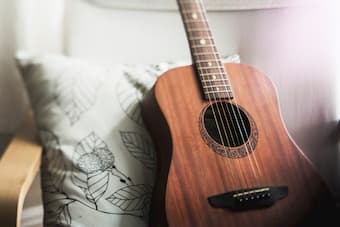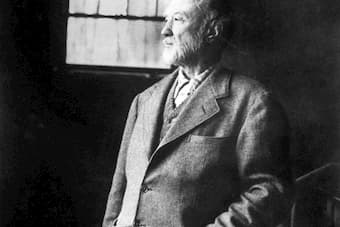
© Kari Shea / Unsplash
At the risk of sounded clichéd, the coronavirus pandemic has thrown into sharp focus the precarious nature of most professional musicians’ lives. With concert and opera venues closed – and only now beginning to reopen cautiously – many musicians are faced with the very frightening situation of being without any means to earn money.
The profession has always been unstable. Most musicians are self-employed and many combine performing with teaching to supplement meagre concert fees – high salaries are reserved only for the ‘celebrities’ at the very top of the tree. For most, concert and teaching fees are not truly commensurate with the amount of time and commitment musicians must put in to sustain their careers. There are few jobs in the developed world which are so highly skilled yet so poorly remunerated, and many musicians are simply not economically resilient. The events of this year have highlighted this to an even greater extent, and there is absolutely no guarantee that life will return to “normal” for musicians when the venues do re-open. Added to this, there exists a certain societal misunderstanding, sometimes bordering on contempt, for people who make a living in non-standard ways – musicians, writers, artists, actors. The inference is that these people should get “a proper job” and quit moaning.
During lockdown, and its aftermath, those musicians for whom teaching provides a significant part of their income have fared better than those for whom concertising is the only source of making money. But for the professional performer, the lack of concert engagements can feel like the loss of a limb because for many musicians their very identity and raison d’être is defined by performing.
Beethoven: Violin Sonata No. 5 in F Major, Op. 24, “Spring”: I. Allegro (Joshua Bell, violin; Jeremy Denk, piano)
“We’re going to have to be a lot less fancy in future” remarked a concert pianist friend of mine, when we were talking about the effect of the pandemic on concerts and concert-going in the early days of the UK lockdown. He means, to be brutally frank, “beggars can’t be choosers“. Venues and concert organisers/music societies will have less cash to spare and musicians will be chasing fewer engagements; an already competitive profession is likely only to become even more cut-throat. As a consequence, musicians will have to take the work when the opportunity arise without worrying about the prestige of the orchestra, ensemble, or venue.

Charles Ives
To accept that the profession, for which one has spent many years training and honing one’s craft and one’s skills, putting in hundreds of hours of practicing and, as a consequence, giving up many aspects of life which other people outside of the profession would consider “normal”, can no longer be one’s primary source of income comes as a bitter blow to many musicians. When one’s identity is defined by one’s music-making and one’s very personal attachment to one’s chosen instrument, it can feel like an attack on one’s very body and soul. “Portfolio career” is a fashionable term for “doing a variety of jobs” and musicians are masters of the peripatetic working life. Now more than ever, a willingness to be adaptable is crucial – and that may mean drawing one’s main income outside of music.
Some musicians regard this as a sign of failure, but why should there be shame in taking work outside of the profession? Maybe now is the time to be less squeamish about “non-musical” jobs? (Charles Ives worked as an insurance man and Philip Glass as a taxi driver and plumber.) In straitened times, pragmatism must come before art, and if that means taking a job outside the profession, there should be no shame in doing this: you are no less a musician just because it is not your main source of income.
Unfortunately, the musician’s training tends to discourage looking outside of the profession for work. Sure, you might have worked in a bar or helped with front of house duties at a concert venue when you were a student, but very few conservatoires and music colleges offer specific courses in business skills and entrepreneurialism for musicians – from the basics of setting up a personal website, to more sophisticated self-promotion, marketing and PR. In addition, they do not necessarily encourage students to consider other careers within music, such as arts administration or orchestral management, publicity/PR/marketing, music publishing, or working for a venue or recording label. Conservatoires train musicians to be performers and many continue to peddle the idea that a career as a performer is a sustainable one.
Of course, working outside the profession comes at a cost to one’s practise regime: if you’re doing a 9 to 5 job elsewhere, you still have to find the time to practise – and that’s a full-time job even without concerts.
I’ll close with some thoughts from musician friends and colleagues:
I really never want to give it up as a profession. After a few days not practicing I lose a lot of mechanism, so going into a 9-5 job would devastate everything I’ve worked for. But undoubtedly this will see people off…..There never was a “career”. I still don’t really know how it’s meant to work, I just got called for random things that all added up. I had an amazing last 10 years and I hope to God it’s not over. There’s always playing but it wouldn’t be the same. A lot of us have been very, very lucky to get to do this. (RS)
I am a great believer in turning everything to one’s advantage, and I feel that this could be a very liberating time in which musicians can feel that they have permission to explore other interests and career paths which they may have otherwise put on hold. As a pianist, I feel that I identify so strongly with the vocation that to choose any other direction would be a betrayal of that identity, and deemed by others to be a strange decision or even a sign of a lack of success in that area. Musicians are under huge pressure to always look busy with their music, and even made to feel guilty when doing something other than practising(!) – there is no shame in admitting that music isn’t actually the *only* thing which makes you tick. (LKP)



